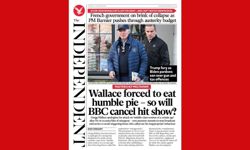According to the Newspaper Society, it stipulates that local councils should not publish newspapers in direct competition to the local press, these should not appear more frequently than quarterly and should only include material directly related to local services.
The new Code, which is subject to the approval of Parliament, applies in relation to all decisions by local authorities relating to paid advertising and leaflet campaigns, publication of free newspapers and newssheets and maintenance of websites – including the hosting of material which is created by third parties.
Communities Secretary Eric Pickles said: “An independent local press is an essential part of our open democracy and it is a vital part of local accountability, but the rules around council publicity have been too weak for too long… The changes will end the weekly Town Hall freesheets, stop professional lobbyists being hired and make advertising guidelines crystal clear so councils know exactly when misuse of public funds is a breach of the code.
“Councils need to give due diligence to their communications operation and make sure every effort has been made to focus taxpayers’ money to where it should be spent – protecting frontline services.”
Mr Pickles has raised strong concerns over the frequency of council papers following a sustained campaign by the NS and its members who submitted evidence to a Government consultation on the Code.
“The revised Publicity Code contains specific guidance on the frequency, content and appearance of local authority newsletters, newssheets or similar publications,” the explanatory memorandum to the revised Code states. “The Department considers that the Publicity Code, rather than competition legislation, is the right vehicle for imposing tougher rules to stop unfair competition by local authority newspapers because the issues involved go beyond the purely economic considerations of, for instance, council newspapers diverting revenue from paid advertising away from local newspapers.
“The Department’s view is that the proliferation of council newspapers can have the effect of reducing the impact of independent local newspapers. A healthy free press is important in providing information to the public to hold their local authority to account. Council newspapers, issued frequently and designed to resemble a local newspaper can mislead members of the public reading them that they are local newspapers covering council events and give communities a biased view of the activities of the council.”
The code includes seven new central principles to make sure that council publicity is lawful, cost effective, objective, even handed and appropriate, and that it has regard to equality and diversity and is issued with care during periods of heightened sensitivity.
Advertising should be balanced, factually accurate and not likely to be perceived by the public as a political statement or a commentary on contentious areas of public policy, the code states.
Councils should not spend taxpayers’ money to lobby government through private sector lobbyists or through publicity stalls at party conferences.










